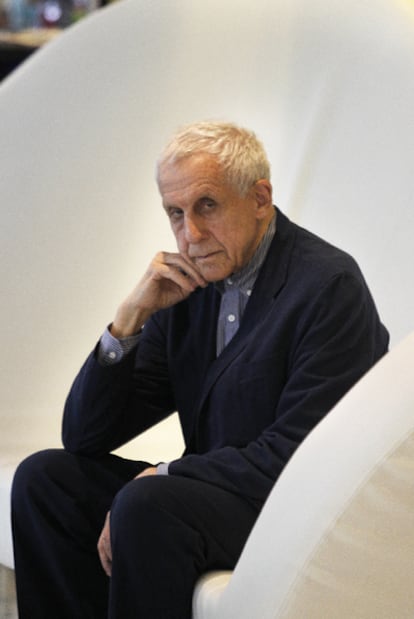Transition nurtured quality architecture, says guru Frampton
British architect Kenneth Frampton's book Modern Architecture: A Critical History is the bible for students of the discipline
British architect Kenneth Frampton has built just one apartment block in London and one housing project in the US. "I guess I realized that I could contribute more to the world writing about and teaching architecture than trying to construct it," he says in Madrid, where he has been invited by the La Caixa Scholars Association. He's right. His book Modern Architecture: A Critical History is the bible for students of the discipline and he has revised it three times since it was first published in 1980, most recently in 2007 when he investigated the phenomenon of star architects.
Does spectacular architecture still upset him? "The 'Manhattanization' of the world will continue in emerging countries such as China and Russia: speculative architecture moves money, and that ensures that the spread of skyscrapers will not stop," he says. The worst thing in recent years, he feels, has been "the treating of architecture as art [...]; that reduces architecture to the façades of buildings." But he sees press attention as positive: "We have got to know about works put up with scarce means such as those of Francis Kéré in Africa."
Frampton, who lives in the US, where he moved in 1966 to give classes at Columbia and Princeton universities, has written that there are four countries with a high architectural culture: Japan, Spain, France and Finland. "There is no isolated figure that exists, rather an increased number of architects putting up buildings of great quality. That is architectural culture. Spain achieved it thanks to the governments of the Transition and the middle class."
Today he wouldn't know how to judge. It's 50 years since he visited Madrid and he declares himself "incapable of understanding the city limits." "Growth without limits does not make cities. It is a reflection of consumerism," he says. "The automobile is the most apocalyptic invention of all time. Even more so than the atomic bomb, because it is around the whole world and there is no way back. The automobile is so integrated into the working of our economy that we will not be able to do without it. Even if we walk."

Tu suscripción se está usando en otro dispositivo
¿Quieres añadir otro usuario a tu suscripción?
Si continúas leyendo en este dispositivo, no se podrá leer en el otro.
FlechaTu suscripción se está usando en otro dispositivo y solo puedes acceder a EL PAÍS desde un dispositivo a la vez.
Si quieres compartir tu cuenta, cambia tu suscripción a la modalidad Premium, así podrás añadir otro usuario. Cada uno accederá con su propia cuenta de email, lo que os permitirá personalizar vuestra experiencia en EL PAÍS.
¿Tienes una suscripción de empresa? Accede aquí para contratar más cuentas.
En el caso de no saber quién está usando tu cuenta, te recomendamos cambiar tu contraseña aquí.
Si decides continuar compartiendo tu cuenta, este mensaje se mostrará en tu dispositivo y en el de la otra persona que está usando tu cuenta de forma indefinida, afectando a tu experiencia de lectura. Puedes consultar aquí los términos y condiciones de la suscripción digital.








































